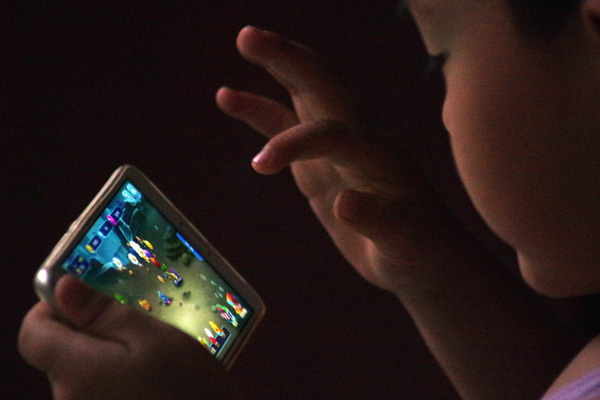Sex, violence widespread online
By Li Lei | China Daily | Updated: 2019-04-16 09:12

Material viewed by tens of millions of primary and middle school students
Tens of millions of primary and middle school students see widespread pornography and cyberviolence, a recent survey shows, as China has ratcheted up its efforts to eliminate such content over the last decade.
The Report on Chinese Minors' Internet Use 2018 found that 30.3 percent of netizens under age 18 reported running into porn, violence and illegal drug use while surfing the internet.
Almost 15 percent had sustained mental or financial damage due to misleading information online, and nearly 16 percent said they had experienced verbal attacks, bullying or unwanted privacy disclosures while using the internet, according to the report, which was released by the Central Committee of the Chinese Communist Youth League and the China Internet Network Information Center.
It was based on a survey of 31,158 primary and middle school students nationwide. Compared with a decade ago, the number of young students encountering pornography and violence online has decreased.
A survey by the China Youth and Children Research Center in 2009 found that 48.3 percent of adolescents had visited porn sites, and 43.4 percent had received emails that bullied them or suggested violence.
The government established the 12321 hotline in 2008 to handle complaints about fake information, porn and online bullying. The hotline receives tens of thousands of such reports every month, with many relating to pornography, according to the hotline's work reports.
Liu Han, a high school student in Beijing who frequently uses smartphone apps for studying and entertainment, said pop-up windows containing sexual content are commonplace on websites offering free movies and popular online novels - sites frequently visited by his peers.
"They even pop up on the screen during class while the teacher is giving a presentation," he said.
Experts say such content could have an immense impact on adolescents whose emotions usually overtake reason.
Sun Hongyan, a researcher at the China Youth and Children Research Center, said youngsters have a strong tendency to imitate and explore, but the problem is that many have limited control over how far they can go.
The situation is worsened by the absence of formal sex education in schools, which is either sidelined by academic lessons or canceled by teachers who feel embarrassed to talk about sex in public, Sun added.
"But pornography in most cases is quite misleading," she said, adding more needs to be done to eliminate such content on websites and apps that children frequently use.
She noted that the early detection of adolescent issues - such as isolation or overwhelming academic pressure - is also crucial to reducing the negative influence of such material.
























